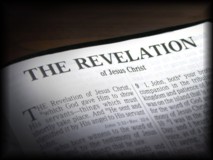"The Nicolaitans?" - Revelation 2
 My reading this morning caused me to wonder about this term, Nicolaitans. What is it about these people that God hates? As you know, you can find information about anything on the Web, but you must be careful because any schmo can put any kind of information there with no burden of proof.
My reading this morning caused me to wonder about this term, Nicolaitans. What is it about these people that God hates? As you know, you can find information about anything on the Web, but you must be careful because any schmo can put any kind of information there with no burden of proof.I'm comfortable with some of the definitions I found. One is a word origin definition:
The root of the word Nicolaitans comes from Greek nikao, to conquer or overcome, and
I've heard stronger definitions, including those who site the Council of Trent's statement: "If anyone shall say that there is not in the Catholic Church a hierarchy established by the divine ordination, consisting of bishops, presbyters and ministers, let him be anathema (or cursed)." I've even heard one definiton of a rather fanatical family who uses the mention of Nicolatians in Revelation to justify the fact that they no longer want to attend church and have become "home churched." Clearly, this is not the model God is encouraging as evidenced in this very chapter where He begins writing letters to the seven churches.
I've heard discussions about this before and many have their opinions. True, I'm no expert on all things Scriptural, but I've prayed about this and I'm comfortable with this term meaning anyone that rules God's people in a way that Christ Himself did not model: those who are not shepherds or servant-leaders. Much of what we have read about Jesus' life was how He taught His disciples to beware of the leaven of the Pharisees and religious leaders.
I'm fascinated how God, through John, writes a personal letter to each of the churches, praising and encouraging them. Here's the rebuke for the four churches mentioned in this chapter:
To the church at
To the church at
To the church at
To the church at Thyatira: Stop permitting Jezebel, the false prophet, to lead people astray by worshiping idols and committing sexual sin.
Who are we? Which letter would be for our church? Are we to heed each letter as if it was written to us?
Stay tuned...
peace,
e

